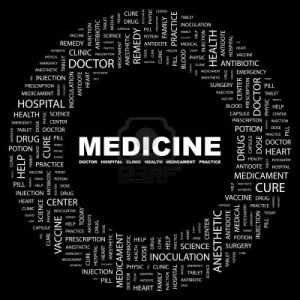 I have long been concerned about the conduct of drug companies. I worry about pervasive conflict of interest in the generation, synthesis and dissemination of the evidence that guides my clinical practice. So, when I was asked to review Peter Gøtzsche’s book on these topics, I was excited.
I have long been concerned about the conduct of drug companies. I worry about pervasive conflict of interest in the generation, synthesis and dissemination of the evidence that guides my clinical practice. So, when I was asked to review Peter Gøtzsche’s book on these topics, I was excited.
It is hard to imagine someone better qualified to write this book: a biology and chemistry graduate, Peter Gøtzsche began his career as a sales rep for Astra. In 1977, he took responsibility for setting up a medical department at Astra-Syntex and saw from the inside how trials can be abused to build a case for particular products – in his case Naproxen, a non steroidal anti-inflammatory drug (NSAID). In 1978 he started medical school, whilst still working for the company, only leaving Astra-Syntex on qualification six years later.
Gøtzsche’s PhD focussed on bias in randomised controlled trials of NSAIDs for rheumatoid arthritis, generating important results regarding the impact of funding on outcome. He went on to help found the Cochrane Collaboration and to found the Nordic Cochrane Centre. His academic career has focussed on bias, trials and evidence synthesis.
Before I review Deadly Medicines and Organised Crime, I wish to state unequivocally that I agree with Gøtzsche on many fundamental points. I think that industry funded research is inefficient and systematically favours the products of the sponsor. I am appalled by pervasive hidden trials data and publication bias. As receipt of information from industry appears to be harmful, I think industry should play no role in medical education. The current model is clearly broken and some of the solutions Gøtzsche suggests, for example requiring independent trials before licensing medicines, are good ones.
Given the importance of raising these issues, particularly with prescribers, and the obvious expertise Gøtzsche had to draw on, it is a real shame this is not a better book. The sentences are long and often muddled. Chapter three, in particular, is almost unreadable. The superlatives and hyperbole are pervasive, tiresome and, in places, a little offensive:
‘Drug reps are advised to work with key opinion leaders and turn them into ‘product champions’, and also to find younger people who can have their profile raised so that they also become key opinion leaders. A bit like Hitler-Jugend, so they can go out and terrorise common sense among those who are not yet members of the Party.’ (p. 82)
‘…the results generated huge ‘controversy’, with innumerable letters and papers written by seemingly independent whore doctors who were hired guns for the company.’ (p. 100)
‘Whore doctors’, bizarrely, is indexed.
Gøtzsche tries to cram in too many anecdotes and ideas, many of them not clearly related to the preceding sentences. Chapter 21, the book’s manifesto for change, attempts to take on income inequality, the financial crisis and the organisation of US healthcare, in addition to the regulation of health research.
Given Gøtzsche’s background in evidence synthesis, a surprising feature of the book is the frequency with which strong assertions are backed up with stories, reference to a single trial or, occasionally, simply left unreferenced.
‘…bipolar disorder…is mainly iatrogenic, caused by SSRIs [selective serotonin reuptake inhibitors] and ADHD [attention deficit hyperactivity disorder] drugs…’ (unreferenced claim, p. 230)
Often I found claims unconvincing but did not know enough to be sure. Occasionally I did know a little of the literature and could be more confident I was being given an incomplete picture. For example, studying the association between antidepressants and falls is difficult. In observational studies, it is hard to adjust for clinicians favouring particular medications in frail patients they feel at high risk of falls.
‘…a carefully controlled cohort study of depressed people over 65 years of age showed that SSRIs more often lead to falls than older antidepressants or if the depression was left untreated.’ (p. 198)
Whilst I am unfamiliar with the study cited by Gøtzsche to support his claim, I know that case only methods, which theoretically deal with this form of confounding better, find SSRIs and older antidepressants increase the risk of falls to similar extent. From a founder of the Cochrane Collaboration, I would have expected a more rounded account of the literature.
To be fair, there are some fascinating ideas in this book. The section on active placebos (p. 49) is great; the extent of the publication bias in trials of granisetron for post operative nausea and vomiting (p. 96) startling; some of the leaked industry documents truly frightening (for example, the table on page 239); and I really like the idea that scientists involved in important trials should conduct the analysis whilst still blinded to the treatment allocation, write two versions of the paper and only unblind the data when all co-authors have approved the manuscripts (p. 266). The reference lists are also likely to be useful to those taking more than a passing interest in these issues.
If you haven’t read much on this topic, you should. You should then take action. I would recommend reading Ben Goldacre’s Bad Pharma or Jerome Kassirer’s On the Take. Peter Gøtzsche has made many important contributions to this field. Sadly, this book is not one of them.
“Deadly Medicines and Organised Crime: How Big Pharma Has Corrupted Healthcare” by Peter Gøtzsche is published by Radcliffe, ISBN: 9781846198847
Tom Yates is a clinician, currently studying TB transmission in rural South Africa. He is a member of Healthy Skepticism and has supported both the Bad Guidelines campaign and the (currently inactive) Conflict Free Conferences project. Tom has worked on studies supported by Pasante, GSK and Sanofi. He has not benefited financially from these relationships.
Books reviewed in Speaking of Medicine are independent of the book’s publisher. Reviewers do not receive a fee but are allowed to keep the review copy of the book.
source; blogs plos org
 Online Libraries are of great importance due to its rendered services which are reliable and compassionate. Online education hands gained some value to the individuals with the help of these online libraries. They are the storehouse of the data and textbooks so that anyone can access it at any time.
Online Libraries are of great importance due to its rendered services which are reliable and compassionate. Online education hands gained some value to the individuals with the help of these online libraries. They are the storehouse of the data and textbooks so that anyone can access it at any time.



